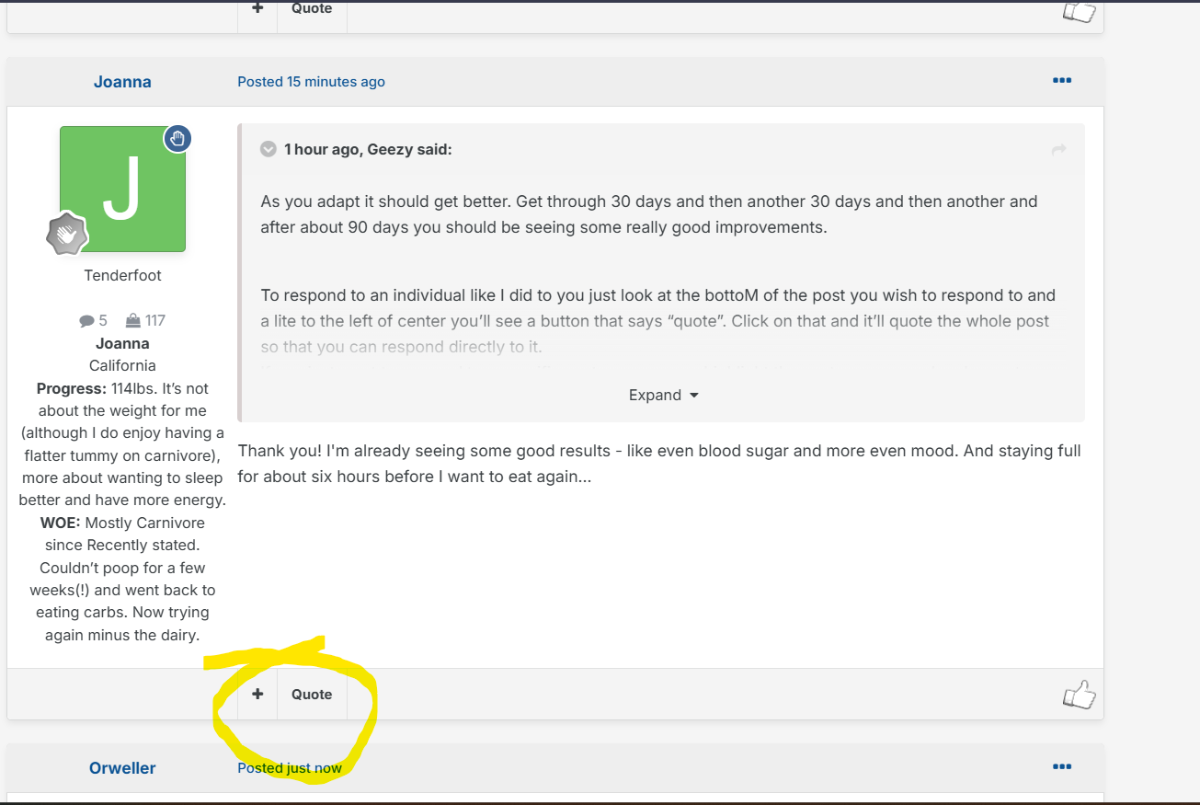Welcome to our Carnivore / Ketovore / Keto Online Community!
Welcome to Carnivore Talk! An online community of people who have discovered the benefits of an carnviore-centric ketogenic diet with the goal of losing weight, optimizing their health, and supporting and encouraging one another. We warmly welcome you! [Read More]
- Replies 15
- Views 1.1k
- Created
- Last Reply
Top Posters In This Topic
-
Idunno 9 posts
-
Geezy 3 posts
-
Scott F. 1 post
-
Carburetor 1 post
Most Popular Posts
-
I’ve already addressed these concerns on the other posts you made but I’ll repeat myself here. I don’t think you quite understand the 80% fat idea. The foundation of the carnivore plan is
-
The carnivore diet is an elimination diet more so than it is anything else. You can choose either of the two scenarios and go with it and you will see results over time. Why? Not because the calculato
-
You are overthinking this whole thing. It’s not the least bit complicated. First off you still are not unite fat ratios. It’s not about how much the fat weighs. It’s about how many calories ar in t








Hey everyone
I tried carnivore diet for a couple weeks and it gave my stomach a muffin top. It’s never been muffin top in my whole life until carnivore. It’s scary. I lost a few pounds but gained a muffin top.
my goal was to get a flat stomach and I got an ugly muffin top now.
I am confused about what protein and fat ratios to eat. I’ve spent hours trying to calculate meals with 75% fat. It seems un natural to eat 75% fat because no meats have that much fat.
I’ve watched countless online videos about carnivore diet and I don’t understand the fat to protein ratio. they say we need to eat 75-80% fat in all meals but that would mean I would need to eat 1.5 sticks of butter daily? Is that right?
The videos online are also contradictory about how much protein I need to consume daily. this should not be so confusing.
my current weight is 212 pounds
my goal weight is 184 pounds
i am type 1 diabetic too so that’s not a big help
how much protein should I eat daily?
how much butter do I eat daily?
How much is too much?
my goal is weight loss as in fat loss and especially getting rid of this muffin top that appeared unexpectedly
everyone else is having such great results but I got a muffin top it’s so depressing looking.
everyone else just eats whatever and does not measure everything, and many videos say they eat 75% fats but never add any butter? It makes no sense to me.
i had keto fatigue and added Redmon sea salt and maybe it helped but I don’t like the taste of salt. I’ve never salted my food until carnivore diet flu.
I’m scared to continue carnivore because it gave me a muffin top even though I lost a few pounds my body looks worse